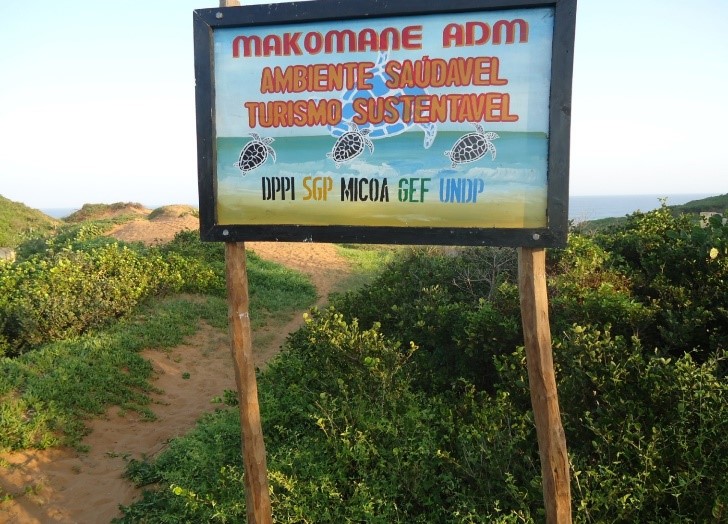
The TSE4ALLM project implemented by UNIDO with financial support from the GEF project seeks among other results, to demonstrate the technical and commercial viability of renewable energy systems in the productive sector, including agriculture and the agri-food industry through 4 project components namely: (i) establishment of a conducive policy and regulatory environment; (ii) capacity building and knowledge management; (iii) technology demonstration and scaling up and (iv) monitoring and evaluation.
In 2021, a call for proposals was launched to identify investment projects for the development of renewable energy systems to support enhancing the agricultural value chain, commercial productive activities, and energy production from waste. The technological focus is on solar and biomass technologies. MAKOMANE-ADM, Mozambique was among the three projects alongside AFORAMO and CHARIS-Associacao de Solidariedade Social that were selected to produce a total installed capacity of 86.9 kW at a total funding of 243,095 USD.
In August 2022, MAKOMANE-ADM, became the first recipient of the financial support and will Install a total capacity of 23,9kW of integrated renewable energy systems comprising of Solar Cold (10kW) storage to support Fish and animal farming activities and for conservation of fruits and vegetables; Biogass for community cooking and food processing (8,4kW); Solar irrigation system with elevated storage (5.5kW) in Quissico, Zavala district, Inhambane Province.
The company is one of the largest and more popular fish farmers in the Inhambane province that produces high quality fish for local consumption and to supply to larger markets including the country capital-Maputo. The 10kW solar cold storage system based on solar panels will allow the conservation of fish, encouraging the scaling up of fish farming activities, and reducing costs with feeding the fish after reaching adulthood. The system will also benefit local fishermen and farmers from neighbouring associations and cooperatives of Quissico allowing them to have more bargaining power vis-à-vis the market.
In addition, 5.5kW of solar energy will be used to connect an electric pump to supply water for reservoirs of 10,000 cubic meters of capacity. The water will be used for irrigation in the production fields of vegetables which are much needed in local and regional markets. The waste that will be generated from the agriculture activity will be used both to feed the fish and to feed the biogas system
In Quissico there is large abundance of animal farmers generating large amounts of animal excrement that pollutes the environment. On the other hand, local communities are heavily reliant on wood fuels for cooking which contributes to the accelerated deforestation in the rural areas. The animal excrement of cattle and/or birds will be used to feed a 8.4kW biogas system and the gas will be used for several purposes including: (i) baking local bread, drumstick tree biscuits and cassava which is a very healthy food and widely consumed in Quissico which will be sold by the association; (ii) provision of community cooking services where the general public will pay a fee to cook in the kitchen; (iii) the effluent will be used as a fertilizer to promote the scale up of organic agricultural production (horticulture); (iv) incentivize the collection and supply of organic waste resulting from the agriculture production to be delivered at the association for a fee; (v) select and use the organic waste either to feed the fish or as an input for the biodigester (biogas production);

